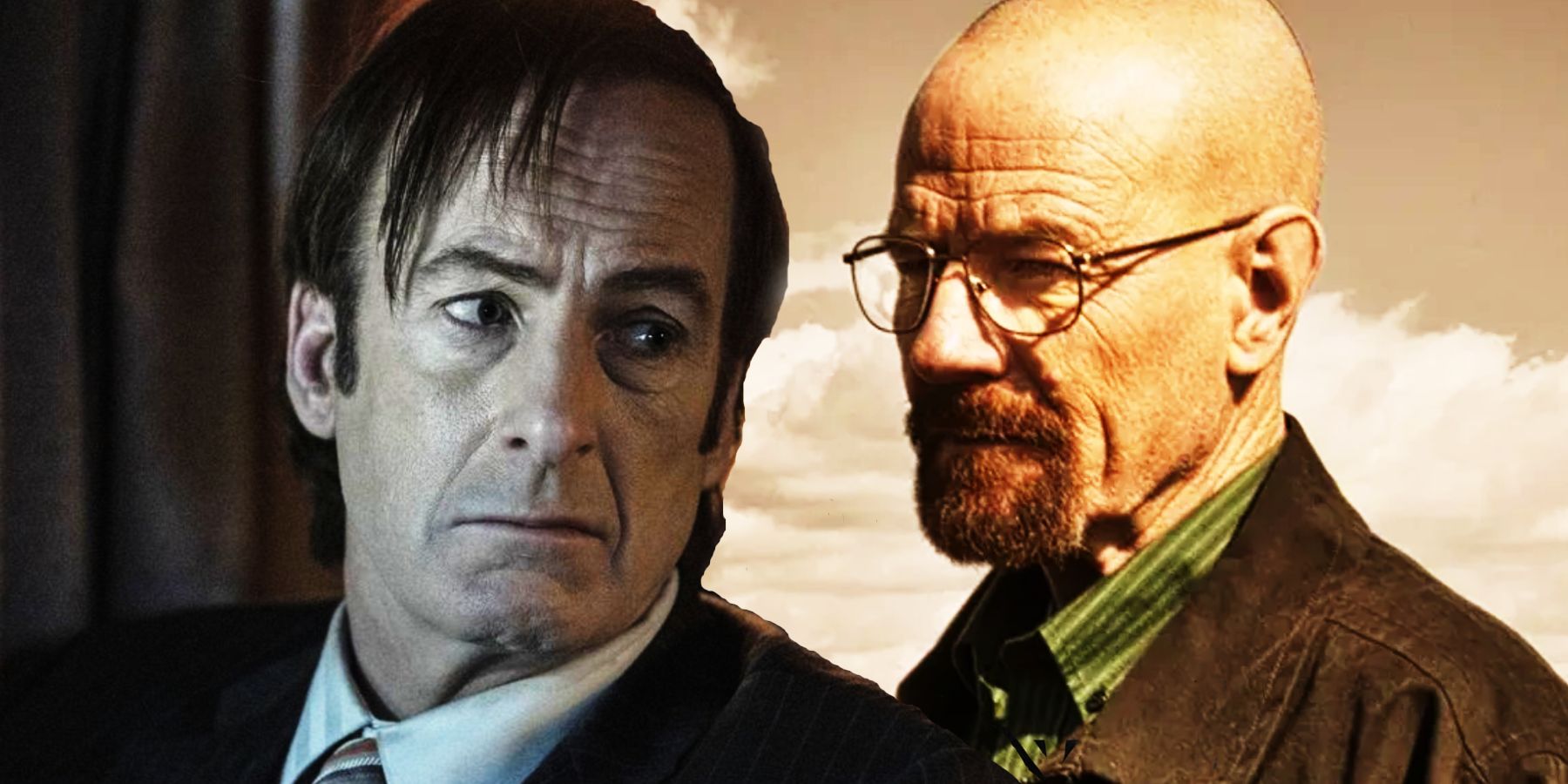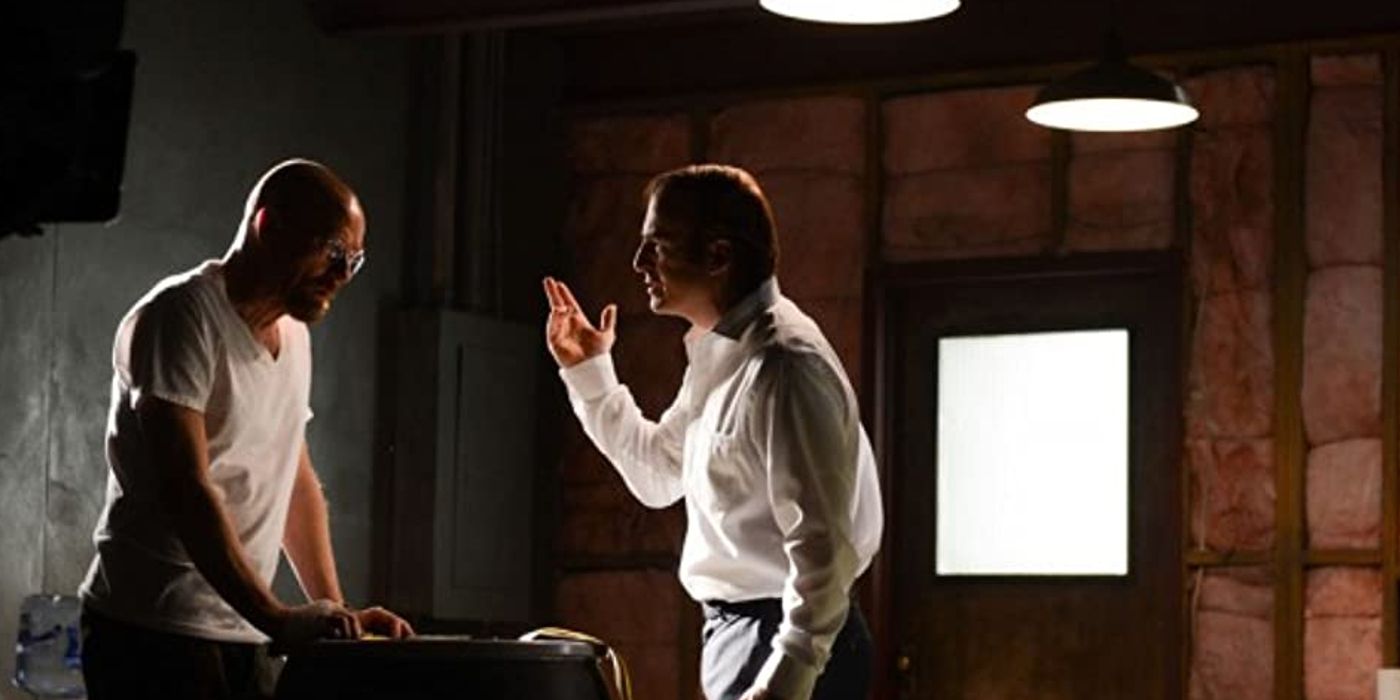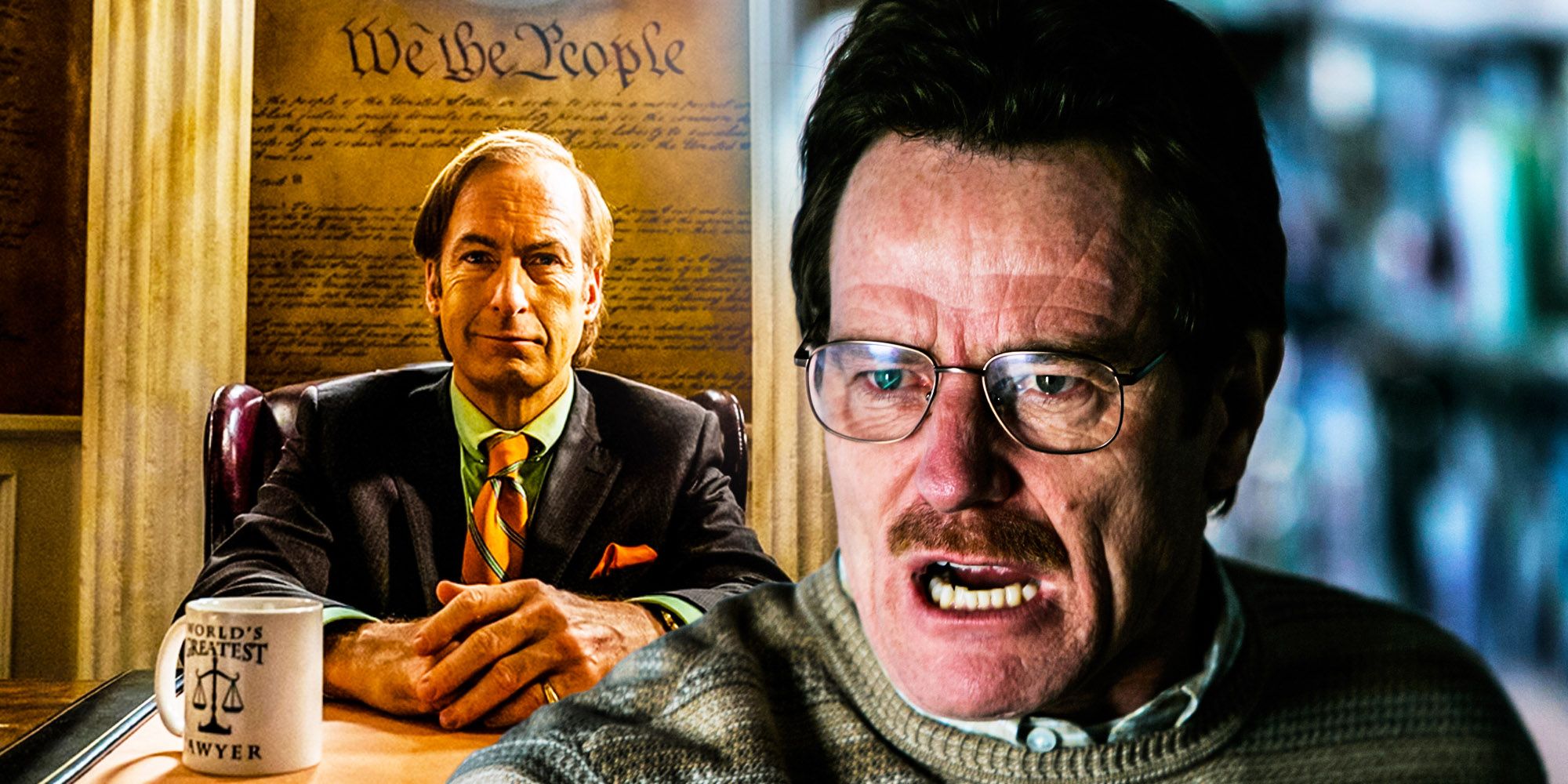The cameos by Breaking Bad's Walter White (Bryan Cranston) in the final season of Better Call Saul have fixed a problem with how the character has been remembered. The final season of the Breaking Bad spinoff/prequel saw things come full circle for Jimmy McGill (Bob Odenkirk) as he finally held his hands up to the criminal endeavors of his alter-ego, Saul Goodman. In doing so, Jimmy laid bare how much of a villain Walter White actually was, which is at odds with the antihero status the character has been given in the popular imagination.
In the final episode of Better Call Saul, the audience sees the aftermath of Walt's last stand in the Breaking Bad finale. Marie Schrader (Betsy Brandt) is still a bereaved widow whose family life has been completely upturned by the criminal actions of her sister and her brother-in-law. Walter's assault on the compound was never about avenging the death of Marie's husband Hank (Dean Norris), nor was it about rescuing Jesse (Aaron Paul). It was always about avenging himself against Jack for damaging the legacy of Heisenberg's signature blue meth. The two flashbacks to Jimmy's interactions with Walter during Better Call Saul's final episodes wisely remind the audience of Walter White's true nature ahead of the show arriving in the post-Breaking Bad timeline.
Better Call Saul Remembers That Walter White Is Meant To Be Terrible
Walter White, as seen in Better Call Saul is a stark reminder of the man's arrogance and hubris. There are only two scenes, both of which are set at opposite ends of his relationship with Saul Goodman. The first depicts Walter and Jesse kidnapping Jimmy a.k.a Saul in an attempt to get him to silence their incarcerated dealer Badger. This is early in Walter White's rise to power, so he's still a bumbling and amateur chemistry teacher who's a bit out of his depth.
Not that Walter willingly lets his mask slip, and he's absolutely furious at Jesse for showing Saul Goodman around their makeshift meth lab. Walter White's plan is still incredibly small-scale, but he's too arrogant to accept the advice of the more experienced criminal Slippin' Jimmy McGill. It's this arrogance that will ultimately lead to Walt's downfall, and it's that same arrogance that makes Walter White a difficult character to root for.
Better Call Saul Proves Walter White Is Irredeemable, But Jimmy Isn't
While audiences may have vicariously rooted for Walter White, he was never the hero of Breaking Bad. Quite simply, heroes have journeys that fundamentally change their character. Walter White may have gone from mild-mannered chemistry teacher to drug baron, but he stayed true to the darkness at his core right up until the end. He was a selfish and arrogant man who believed he'd been dealt a bad hand in life, and he died as a selfish and arrogant man who had destroyed his family in the process of getting the recognition and rewards he felt he deserved. This is in contrast to Jimmy McGill, who actually does go on a hero's journey.
It's emphasized in the scene between Jimmy and Walt in Better Call Saul's finale where Walter delivers his withering assessment of Slippin' Jimmy McGill. "So you've always been like this" he says, in reference to Jimmy's love of the grift and a big payday. Again, the flashback reminds audiences of Walter's arrogance and snobbery, he's a criminal, but he looks down on the likes of Jimmy and Jesse. However, the scene also set up Jimmy McGill's redemption in the Better Call Saul finale, in taking responsibility for his actions and serving his prison time, he proves Walter wrong. More than that, he reminds everyone that Walter White was always the unrepentant villain of Breaking Bad, not its hero.



